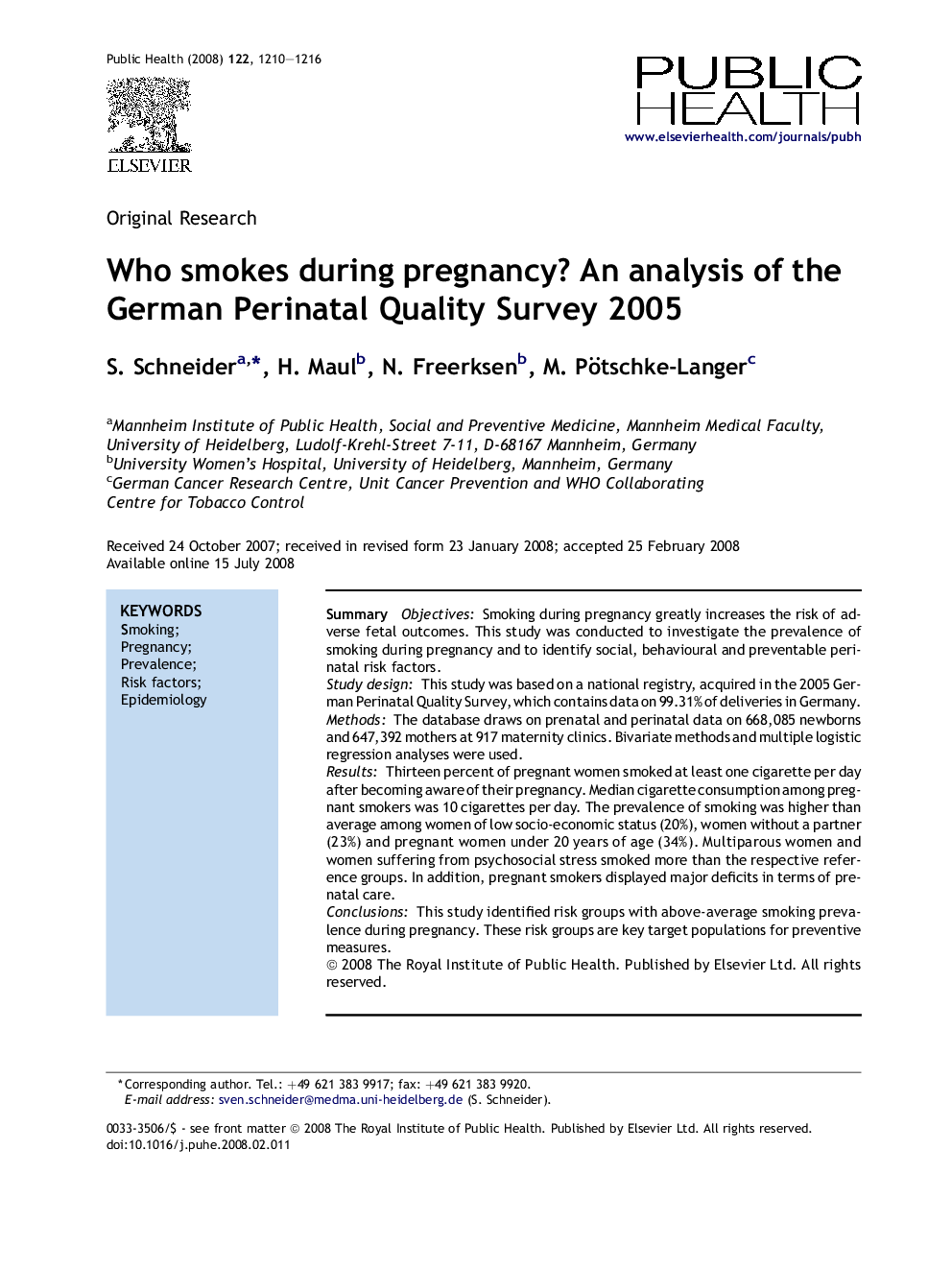| Article ID | Journal | Published Year | Pages | File Type |
|---|---|---|---|---|
| 1088259 | Public Health | 2008 | 7 Pages |
SummaryObjectivesSmoking during pregnancy greatly increases the risk of adverse fetal outcomes. This study was conducted to investigate the prevalence of smoking during pregnancy and to identify social, behavioural and preventable perinatal risk factors.Study designThis study was based on a national registry, acquired in the 2005 German Perinatal Quality Survey, which contains data on 99.31% of deliveries in Germany.MethodsThe database draws on prenatal and perinatal data on 668,085 newborns and 647,392 mothers at 917 maternity clinics. Bivariate methods and multiple logistic regression analyses were used.ResultsThirteen percent of pregnant women smoked at least one cigarette per day after becoming aware of their pregnancy. Median cigarette consumption among pregnant smokers was 10 cigarettes per day. The prevalence of smoking was higher than average among women of low socio-economic status (20%), women without a partner (23%) and pregnant women under 20 years of age (34%). Multiparous women and women suffering from psychosocial stress smoked more than the respective reference groups. In addition, pregnant smokers displayed major deficits in terms of prenatal care.ConclusionsThis study identified risk groups with above-average smoking prevalence during pregnancy. These risk groups are key target populations for preventive measures.
